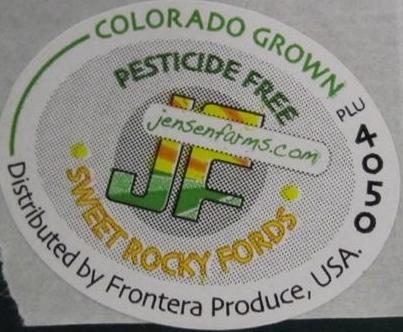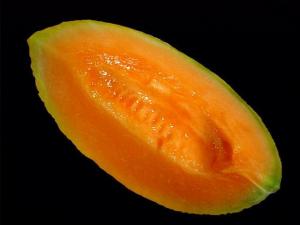It’s not hysteria when 21 people die from cantaloupe.
And the most important point for cantaloupe growers struggling with reduced sales linked to a listeria outbreak happens about halfway through a Denver Post article today:
“A federal report, expected in the next few days, may clarify the outlook, said Mike Bartolo, a Colorado State University vegetable crop specialist based in Rocky Ford. Meanwhile, CSU has been designing experiments to determine the best protocol for food safety after the Holly contamination.”
"Until we’ve got all the facts, we don’t know how to attack it," said Michael Hirakata, whose family has grown cantaloupe here for more than 80 years and supplies major buyers such as King .jpg) Soopers. "I don’t want to go forward without knowing how to prevent this from happening."
Soopers. "I don’t want to go forward without knowing how to prevent this from happening."
In the wake of what some in Rocky Ford call "listeria hysteria," growers wrestle with how to reclaim their good name.
Experts traced the bacterial strain to a farm nearly 90 miles and two counties away in the town of Holly. But that operation labeled its cantaloupe with the Rocky Ford name — a practice that rankles some locals — and health officials initially warned the public away from any melon produced in this sweet slice of the Arkansas Valley.
Talk has begun anew about precisely defining the growing region and vigorously guarding the Rocky Ford name, whether by trying to trademark it or create a certification for its melons. Disagreement among farmers over boundaries could be an obstacle.
Grower Bill Sackett, who owns a produce stand on the east end of town, took out a paper bag and scribbled a crude map. Then he circled an area bordered by Fowler on the west and La Junta on the east — his definition of where true Rocky Ford cantaloupe originate.
"Myself, I’m going to advertise with that circle," said Sackett, who opposes any certification process that brings more government into the mix. "And I’m gonna tell people that they’re good, they’re safe and they’re nutritious."
Growers already employ practices designed to prevent foodborne illness, but the listeria outbreak could trigger a campaign to document and publicize those measures to reinforce public trust.
Good. Market food safety. And compile the data to back up any marketing claims.


 Rocky Ford growing area, have not been linked to this outbreak.
Rocky Ford growing area, have not been linked to this outbreak.
.jpg) blame. They may be putting it in contaminated trucks, unloading it in a warehouse with contaminated handling . . . There are several other ways it could be contaminated on that other end.”
blame. They may be putting it in contaminated trucks, unloading it in a warehouse with contaminated handling . . . There are several other ways it could be contaminated on that other end.” shown), said contamination investigations can end that way — a dead end that just points towards a general region. That’s what happened in the summer of 1991. The hunt for the salmonella-tainted melon source ended without finding the source. All the evidence was either eaten or thrown away.
shown), said contamination investigations can end that way — a dead end that just points towards a general region. That’s what happened in the summer of 1991. The hunt for the salmonella-tainted melon source ended without finding the source. All the evidence was either eaten or thrown away. growing region of Colorado.
growing region of Colorado. cantaloupe because there have been lots of outbreaks on cantaloupe (see the table at
cantaloupe because there have been lots of outbreaks on cantaloupe (see the table at